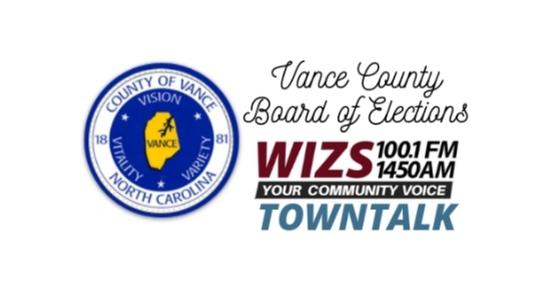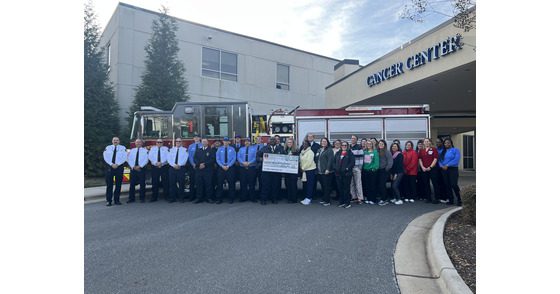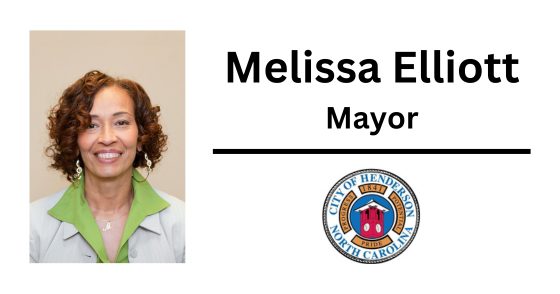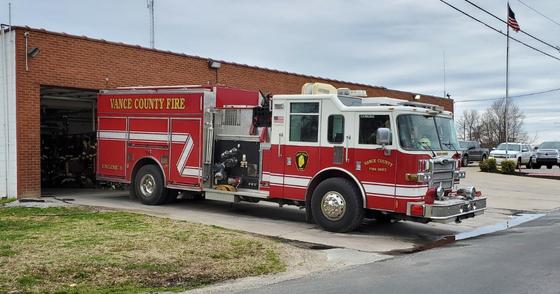In its very title, the Data-To-Action workshop that took place earlier this month clearly states the mission: We have a lot of data – now, what do we do about it?
Over the course of a day and a half, close to 20 participants from a cross-section of the community shared stories, analyzed data and listened to different perspectives, all in an effort to do something about the rising rates of violence in Henderson and Vance County.
Several of the participants came to the WIZS studios Thursday to share some takeaways from that workshop and to talk about what the future holds as the newly formed nonprofit Pathways 2 Peace continues to gather momentum.
Charles Turrentine, Jr., P2P’s founder, along with Dispatch editor Gary Band and local business owners Tasha Fritz and Roy Brown, Jr., said the workshop was a way to hear from a variety of people and to try to get to the root of problems that lead to violence and violent crimes.
The workshop took place at Vance-Granville Community College on June 6 and 7 and was led by facilitators who guided participants through activities that ultimately produced three root causes that contribute to violence and violent crime in the area, Turrentine said: poverty, broken homes and absenteeism.
“Poverty and broken-down families intertwine with substance abuse, feeding the cycle,” he said.
These factors may be easily identifiable, but what actions to take to reverse the trends is what P2P is focusing on now.
As part of the workshop, the group produced an action plan – concrete ways to address the problems.
As far as a timeframe goes, Turrentine was quick to respond. “The timeframe is now,” he said, mentioning an upcoming Community Read-In, a collaboration with Perry Memorial Library that will take place on June 25.
But P2P has plans to do more, from providing mentorship opportunities and peer support for people struggling to hosting other listening sessions to hear what people want and need.
“That’s where Pathways 2 Peace can help,” Turrentine said. “We’re changing the narrative,” he said, connecting agencies and resources with the people who need them. “We’re not in silos, we’re inviting people to come out,” he said.
“We want to change the mindset,” Turrentine said. A feeling of embarrassment may have a hand in people not asking for help, he said. “It’s ok to need help if you want to do better.”
Ultimately, P2P hopes to have a physical location where people can just walk in and ask for help in finding resources, Fritz said.
Fritz is a creative professional and leads The Savvy Sisters, LLC, a local faith-led company that specializes in branding, marketing and design.
For the past 14 years, she has been working with small businesses to build websites, create logos and more.
She said she had intended to attend the workshop for a few hours, mainly because she had committed to being there.
“I went, I showed up with the attitude of ‘Let’s see what this is all about,’” Fritz said. “Once I got there…it became that much more interesting to me. The facilitators brought everything together, she said. “It turned out to be an extremely powerful session.”
From her perspective, Fritz said it’s a matter of pushing people to believe in themselves. “If we want better, we have to do better…uplift instead of tearing each other down.”
As owner of 2 Kings One City Media Co., Brown said he attended the workshop not just as a member of the business community, but as someone who has seen firsthand some of the struggles people face. Through his work offering peer support, Brown said he believes some of the problems “can be nipped in the bud” if people’s needs can be identified and addressed so they can get their lives back on track.
Connecting people to existing resources is a critical component to addressing those needs, everything from finding clothing or household items when money is tight to accessing mental health agencies or substance abuse treatment programs.
Turrentine said he wants people to be able to access resources when they need them to help them get to their destinations – it’s a temporary support that isn’t designed for long-term dependence.
“The system is not designed to be an enabler,” he said, rather, it’s “designed to help you get off the system.”
Band said he witnessed “energy, enthusiasm and engagement” during the workshop, and participants seemed to be laser-focused on the issues that are negatively affecting the city and county.
The community doesn’t necessarily need more programs, he said, but more connections.
“If we can recognize where those resources exist,” Band said, and be able to approach and engage people, the work will pay dividends.
There’s a new website that is offering just such a listing of resources called Connect to Henderson. Agencies and organizations can submit information about the services and programs they provide. The website is https://www.connect-to-henderson.com/
Turrentine said P2P is developing a board now that will create a solid foundation of like-minded people willing to work to improve those three key root causes that were identified: poverty, broken families and absenteeism.
It’s going to take strong leadership – and funding – to make sure P2P is sustainable.
“We want to sustain ourselves,” he said. “While we’re doing the business, we’re doing the work. We’re going to still continue to do the work.”
Click Play

















